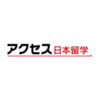
UPDATE | 2023年07月11日
日本留学試験(EJU)は、日本学生支援機構(JASSO)が行なっている、日本の学校への留学を希望する人の日本語力と基礎学力(理科・総合科目・数学)を測る試験です。 日本の学校の多くが、留学生のみなさんが学校に入るための試験にEJUを使っています。そのほか、入学後の授業理解に必要な日本語能力の目安や、奨学金を給付する人を選ぶためにも使われます。
【2023年7月11日に新しくしました】
目次
2023年(令和5年)日本留学試験(第2回)
日本留学試験(第2回)
出願受付期間:7月28日(金)締切
試験日:11月12日(日)
成績発表日:12月22日(金)予定
※日本国内で受験をする場合
最後まであきらめないで、日本語の勉強をがんばってください。
・わからない日本語があったら人に聞いて教えてもらう
・まわりのひとが話している日本語をよく聞く
・知っている日本人の人や学校の友だちとたくさん話をするようにする
など、あなたの積極的なコミュニケーションが日本語能力アップにつながります。
[PR]
日本の大学の半分以上は、学校に入るための試験に日本留学試験(EJU)の成績を使っています。
国立大学においては、ほとんどすべての学校が使っています。専門学校でも日本語力の審査のために日本留学試験(EJU)または日本語能力試験(JLPT)の成績を参考にすることがほとんどです。
日本留学試験(EJU)利用校数 (2022年2月現在)
| 国立 | 公立 | 私立 | 合計 | |
|---|---|---|---|---|
| 大学 | 79 | 56 | 345 | 479 |
| 短期大学 | - | 9 | 94 | 103 |
| 大学院 | 7 | 14 | 53 | 74 |
| 高等専門学校 | 51 | 0 | 0 | 51 |
| 専門学校 | 0 | 2 | 190 | 192 |
「日本語」と、基礎学力を測る「総合科目」「数学」「理科」の4科目のうちから、1科目から3科目までを選んで受験します。
「総合科目」「数学」「理科」は、日本の高等学校の学習指導要領に準じた内容となっています。
「総合科目」と「理科」を同時に選ぶことはできません。学校や学部、コースによって学校に入るための試験に使う科目がちがいます。だから、入学を希望する学校が指定している科目をEJUの試験を受ける前に確認しましょう。
| 試験科目 | 出題言語 | |
|---|---|---|
| 日本語 | 日本語 | |
| 基礎学力 | 総合科目 | 日本語 または 英語 (選択) |
| 数学 | ||
| 理科 | ||
日本の大学等での勉強に対応できる日本語力(アカデミック・ジャパニーズ)を測定します。
【出題内容】「記述」「読解」「聴解・聴読解」の3つの領域から構成されています。
時間と配点は、「記述(書く問題)」30分(50点)、「読解(読んで理解する問題)」40分(200点)と「聴解・聴読解(聞いて理解する問題)」55分(200点)で合わせて400点満点となっています。
「記述問題」は、2つ以上のテーマのうちから1つを選んで、指定の文字数で質問に答えます。読解、聴解・聴読解の問題は、すべてマークシート方式です。
「読解問題」は、日本語で文章問題と選ぶ答えが書いてあります。
聴読解問題は、問題が書いてある本に書かれていることを見ながら、音声で流れる問題に解答します。聴解は、問題も選ぶ答えもすべて音声で流れます。
80分(200点満点)で、文系の基礎的な学力を測定します。
【出題内容】日本の高校で学ぶ「公民」「地理」「歴史」を合わせた総合的な科目です。公民は、政治や経済、社会全般に関する科目です。
80分(200点満点)で、数学の基礎的な学力を測定します。
【出題内容】文系学部や数学をあまり必要としない理系学部用の「コース1」(基本,Basic)、または数学を高度に必要とする学部用の「コース2」(上級,Advanced)のどちらかを選びます。
80分(200点満点)で、理系学部での勉強に必要な理科(物理・化学・生物)の基礎的な学力を測定します。
【出題内容】物理、化学、生物の3教科のうち2教科を選んで受験します。
日本語の試験以外は、受験する言語を日本語と英語から選ぶことができます。しかし、学校によっては、日本語での受験しか出願の条件として認めていないこともあります。だから、希望する学校の試験要項(大学や専門学校の入学試験をうけるときに大切なことを書いたもの)をはじめに確認をしておきましょう。
日本留学試験(EJU)のウェブサイトで2010年から後の試験問題が公開されています。その他、これまでに出題された試験問題は、日本の中の主要な書店で買うことができます。しっかりと試験の準備をしておきましょう。
日本留学試験(EJU)でこれまでに出題された試験問題サンプル(JASSOのウェブサイト)
※高等教育機関での学びはおおまかに文系と理系に分別されています。総合的な分野や今の社会に合わせた新しい学問では、文系・理系の枠をこえた学びが必要とされます。日本留学試験(EJU)の受験のときには、進学を希望する学校が指定している科目を確認して選びましょう。
文系:法学部や社会学部、国際関係学部など、主に人間の活動を研究の対象とする学問の系統
理系:工学部や理学部、医歯薬学部など、主に自然界を研究の対象とする学問の系統
多くの日本語学校では、「日本留学試験(EJU)」の対策を行っています。EJU対策のためだけのコースがある学校と、大学受験のためのコースにEJU対策が入っている学校があります。希望するコースがあるか調べてみましょう。
大きな書店や、オンライン ショッピングでEJUについての問題集がたくさん売っています。科目ごとに本が分かれていて、1冊につき2,000円ぐらいで買うことができます。ウェブでサンプルページを見られることもあるので、サンプルページを参考にして、自分に合った問題集を見つけましょう。
本番を仮定した試験「模擬試験」を、試験当日までに受けることをおすすめします。問題を解くために使う時間や、試験当日のその場の気分などをつかむためにもとても大切です。
どの方法を選んでもよいですが、勉強をするときには、答えが合っているかを確認しておしまいいにするのではなく、その問題をなぜまちがえたのかをよく確認して、問題1つずつをよく理解することが大切です。分からなかった問題を、分からないままにしないでください。
毎年2回実施されています。第1回は6月、第2回は11月に試験が行われます。
| 第1回 | 第2回 | |
|---|---|---|
| 出願 | 2~3月 | 7月 |
| 受験票受取 | 5月 | 10月 |
| 試験日 | 6月 | 11月 |
| 成績通知書受取 | 7月 | 12月 |
日本の中の17都市と海外の17都市で実施されています。(2022年9月現在)
北海道、宮城県、群馬県、埼玉県、千葉県、東京都、神奈川県、石川県(または福井県)、静岡県、愛知県、京都府、大阪府、兵庫県、岡山県(または広島県)、高知県、福岡県、沖縄県
インド(ニューデリー)、インドネシア(ジャカルタ・スラバヤ)、韓国(ソウル・プサン)、シンガポール、スリランカ(コロンボ)、タイ(バンコク・チェンマイ)、台湾(台北)、フィリピン(マニラ)、ベトナム(ハノイ・ホーチミン)、香港、マレーシア(クアラルンプール)、ミャンマー(ヤンゴン)、モンゴル(ウランバートル)
「出願」は試験を受けるための申し込みをすることです。「オンライン出願」と「郵送出願」の2種類から選べます。試験日よりも3か月以上前に出願期間が設定されています。忘れずに出願し、受験料の支払いをしましょう。実施地により、選ぶことができる出願方法や受験料がちがうので注意してください。
(日本で試験を受けるとき)出願方法に関係なく、簡易書留郵便で申込をした住所に受験票が送られてきます。配達員の人から直接受け取りましょう。
出願方法に関わらず、簡易書留郵便で申込をした住所に「成績通知書」が送られてきます。出願をオンラインで行ったときは、オンラインでの成績確認ができます。成績は、志望校を選ぶときの参考にしましょう。
学校に入るための試験を受けるときには、EJUの試験を行っているJASSOから直接、大学や専門学校にこの成績が提供されます。
実施会場や年度によって各日程は異なります。必ず実施要項(試験に関する大切なことを書いたもの)を確認しましょう。出願をして、試験を受けて、成績通知書を受け取れるまでには5カ月ぐらいかかります。入学を希望する学校の試験に間に合うかどうか、しっかりとスケジュールを確認しておきましょう。
2022年度の受験料は以下のとおりです。必ず新しいの実施要項を確認し、実施機関へ問い合わせましょう。
〈日本〉
(1科目のみ)10,000円(税込)/(2科目以上)18,000円(税込)
〈海外〉
・インド 800 ルピー
・インドネシア 110,000 ルピア
・韓国 (1科目のみ) 50,000 ウォン/(2科目以上) 80,000 ウォン
・シンガポール 65 シンガポールドル
・スリランカ 1,850 スリランカルピー
・タイ 400 バーツ
・台湾 (1科目のみ) 1,200 台湾ドル/(2科目以上) 1,600 台湾ドル
・フィリピン 500 ペソ
・ベトナム 275,000 ドン
・香港 (1科目のみ) 450 香港ドル/(2科目以上) 850 香港ドル
・マレーシア 90 リンギット
・ミャンマー 15 米ドル
・モンゴル 35,000 トゥグルグ
日本留学試験(EJU)の成績は、これまでの4試験分(2年間)有効です。受験回数に制限はありません。入学のための試験に使うことができる成績が複数回分あるときは、どの実施回の成績を学校に出すのかを自分で選びます。その受験番号を入学を希望する学校に出してください。出した受験番号で受けたEJUの成績がJASSOから希望校に提供されます。
学校により利用できるな試験の期限がちがいます。これまでの4試験分すべて利用できる学校もあれば、これまでの1年間の成績だけ受付できる学校などもあるため、希望校に必ず確認しましょう。
学校によっては、日本留学試験(EJU)を利用した「渡日前入学許可制度」を行っていることがあります。この制度は、日本に来る前に住んでいる国や地域から出願し、入学のための試験結果を受け取ることができるものです。
自国でEJUを受験し、その成績と高等学校の成績などの書類審査で試験の結果が決まるため、入学するまでの間一度も日本に行く必要はありません。一部の学校では、書類審査以外に学校独自の試験をその場所で行っています。
EJUを使った、「渡日前入学許可」を実施している学校はJASSOのウェブサイトで見ることができます。また、一部の学校の渡日前入学許可の合格目安点を発表しています。日本留学試験の合格目安点はあくまで一つの目安のため、くわしくは各学校に問い合わせてください。
日本留学試験(EJU)の出願時に奨学金の予約申し込みができるものです。EJUで優れた成績を修める必要があります。日本の大学(学部)・短期大学・高等専門学校(第3学年以上)又は専門学校に正規生として新しく入学予定である私費外国人留学生にむけた制度です。
この制度により、奨学金の給付の予約決定を受けた学生は、きめられた期間内に正規生として入学します。入学した学校を通じて、決まった手続きを行うことで、学習奨励費(奨学金)を受け取ることができます。
EJUの試験、留学生のみなさんが日本の学校を受験するにあたって、とても大切な試験です。2回以上受験をすれば、期間内の一番よいと思われるものを選ぶことができます。1回目より2回目の方がよい得点をとれるよう、毎日がんばりましょう。また、あらかじめ自分の点数を知っておけば、希望校選びの参考にもなります。ゆとりがあれば、ぜひ2回以上受験しておきましょう。
■この記事を読んだ人におすすめ

アクセス日本留学 編集部。外国人留学生のみなさんが日本の学校を見つけるための資料請求ができるWebサイト「アクセス日本留学」の運営や「外国人留学生のための進学説明会」を開催しています。
[PR]
[PR]